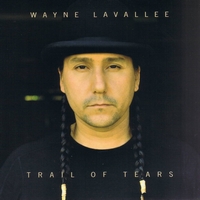Various – The Mokem – Sea Gypsies Of The Andaman Sea
€12,00 €9,68
Description
The Sea Gypsies of the Andaman Sea have been sailing up and down the west coast of the Malay Peninsula for hundreds of years. Traditionally living on their Kabang (self contained houseboats) and trading sea slugs, pearls, shells and bird’s nests for life’s necessities, many sea gypsies have now begun to settle permanently, and abandon their nomadic culture. Some like the Moken, continue to move between the islands, their ocean territory becoming ever more threatened by expanding tourism in Thailand and political repression in Myanmar. The Moken’s music collected on this CD, recorded on a deserted beach between surf and jungle, is wild and unpredicatable, full of warmth and drama and yet as detached from our world as their hard, uncertain sea-faring lifestyle.
Track Listing:
Unknown Artists: 1. Ngai Loi La Aung - 7:35 2. Lu Iu Ma Iu - 11:17 3. Jorda - 7:49 4. Be Touk - 13:15 5. Be Eye Ma Iu Lui Iu Ka Nang - 6:30 6. Ma Nok - 7:31 7. Title Unknown - 8:24
Reviews:
1. AllMusic - John Vallier
Mynamar's Mergui Archipelago and Thailand's Surin Islands are popular destinations for scuba fanatics and eco-tourists alike. Located in the warm Andaman Sea, these islands are skirted with vibrant coral reefs and schools of marine critters. But the islands are not merely hip destinations for an opulent leisure class. They are also home to an indigenous people known as the Moken. On The Moken: Sea Gypsies of the Andaman Sea, seven tunes performed by four Moken women come alive. These are loosely knit songs, strung together with improvisatory tact, gentle vocal refrains, and cyclical percussion patterns. On the first track, "Ngai Loi La Aung," the women perform in the moment, unrestrained by a musical score or conductor. The quartet's drum, an upside-down plastic barrel that is principally used to hold fish, underscores the spontaneity and ingenuity of this Moken quartet. Recorded in the coastal village of Ko Surin Nua by Tom Vater, these performances are interspersed with lighthearted laughter, debates about which song should be come next, and the clanking of a Thai whiskey bottle. Tom Vater provides descriptive liner notes and -- unlike too many fieldworkers -- does the right thing by listing the names of the performers. Over-fishing and political repression in Mynamar are forcing many Moken to leave the their nomadic ways. They are opting for government funded settlements in Thailand, often times living in the shadow of the tourist industry. And though their sense of identity is being forever transformed, the Moken's nomadic sensibility and creative imagination come across loud and clear on these songs.











